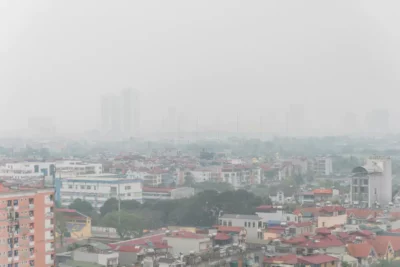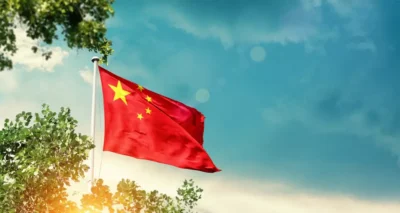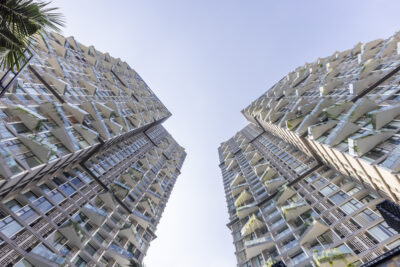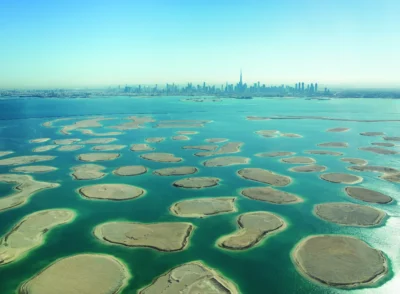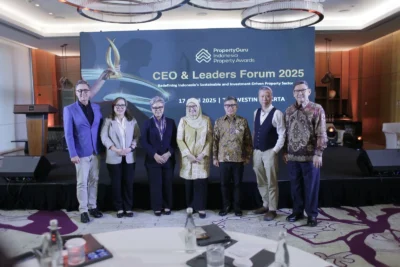Innovative firms blaze trail for sustainable real estate in Asia
Feeding a growing appetite among city dwellers for housing with eco-friendly credentials
Ten years ago, sprawling conurbations like Saigon or Manila—notorious for their infrastructure and environmental challenges—weren’t obvious destinations for seeking out bastions of sustainability. Today, these cities are seeing the rise of world-class projects displaying green credentials, enticing middle-class apartment-seekers who are forming an increasingly sizeable tranche of society in Vietnam and the Philippines.
By 2020, Vietnam’s average annual per capita income is predicted to almost double, from USD1,735 in 2016 to USD3,400. With its large population of citizens under 35 transitioning from a primarily rural economy to an urban one, Vietnam’s property market is proving a lucrative environment for developers, tenants, and both local and foreign buyers, with investors from China, South Korea, Singapore and Malaysia pumping huge sums into the building sector.
In Ho Chi Minh City, two companies are paving the way for sustainable real estate. Gamuda Land, the property development arm of Malaysia’s leading engineering and construction group, started building its 82-hectare Celadon City in 2010, making it the first nature-inspired enclave within this traffic-choked megalopolis.
Prioritising sustainable living from the outset, Gamuda introduced such innovations as a rain harvesting system that utilises energy-efficient water tanks to collect rainfall around the property and transfer water to irrigation areas. The integrated township in Tan Phu district, home to 7,300 apartments across four precincts that can accommodate 25,000 people, won the Best Mixed Use Landscape Architectural Design gong at the PropertyGuru Vietnam awards this year.
“Celadon City has more than 16 hectares dedicated to lush parklands [that afford] residents the privilege of enjoying nature,” says communications executive Tran Nam Phuong, adding that the Cultural Village, Central Park, the Celadon Sports & Resort Club, and other gathering places within the property offer a sense of community. It’s a concept that’s proven influential, as demand for green living spaces are increasing.
A similar success story is Gamuda City, another landmark project in Southern Hanoi, which confronted the Yen So lake area’s chronic water pollution, garbage disposal, and sewage issues head on. Far beyond building a condo, the development effected the complete rehabilitation of a polluted suburban wasteland, leading to significant public health benefits.
Making major inroads into HCMC’s sustainable building boom is CapitaLand Vietnam, whose luxurious, 102-room D1MENSION development in Cau Kho is the first boutique housing development in Saigon—one among CapitaLand’s 13 green estates in the city. Themed projects including De La Sol, D2eight, and d’Edge Thao Dien offer new condominium alternatives to young professionals.
“CapitaLand remains committed to building a greener future for Vietnam,” says CEO Chen Lian Pang. “Lowering our environmental footprint creates value for our stakeholders. We incorporate environmental sustainability in all stages of a project, [from] design and construction to operations.” A key wealth creator in the country, the Singapore-headquartered company—which scooped 13 PropertyGuru Vietnam awards this year, including Best Developer, Best Condo, and Special Recognition for Sustainable Development—has built almost 5,000 apartments across six other cities, from Halong to Nha Trang.
In Metro Manila—another densely populated Southeast Asian city with a burgeoning middle- and affluent class—Taguig-based ArthaLand is a home-grown leader in marrying sustainable credentials with cutting-edge architecture. The property arm of the Century Pacific group has carved a niche in the Philippine market by exclusively focusing on properties that adhere to global and national standards in green buildings.
Being the only development in the Philippines to have received the coveted gold certification in the U.S. Green Building Council’s Leadership in Energy and Environmental Design (LEED) program, its flagship dual-towered Arya Residences in Bonifacio Global City is a milestone in the country for its design and eco-friendly features. Arya Residences’ construction naturally channels the breeze, its balconies and ledges lending natural shade into the units, adding meaningful outdoor space even as daylight reaches 75 percent into the indoors. Interiors are decorated using paints and resins with low volatile organic compound emissions, while built-in fixtures and appliances deploy advanced technology to reduce environmental impact and usage cost.
Winning this year’s “Special Recognition in Sustainable Development” at the PropertyGuru Philippines Property Awards, ArthaLand emphasises human advantages. Arya Residences encourages its residents to live a more environmentally conscious, cost-efficient, and healthy lifestyle. Their advertising tagline, “Green is the new luxury”, is echoed by Raymond Rufino, chairman of the Philippine Green Building Council. “[Sustainability should be more than just achieving efficiency and cost-effectiveness for your property,” says Rufino. “The new frontier for green buildings is improving the health and wellbeing of the people who live, work and play [within your property]. This is a more powerful argument to support going green.”
Angie de Villa-Lacson, ArthaLand president and CEO, stresses sustainable architecture has a ripple effect not just for residents, but the property sector at large. “Standardising green measures is a major step in encouraging developers to take sustainability seriously,” she says. “Greening should go beyond landscape and waste management. To fully reap the benefit of sustainability, developers should be able to measure the inputs and outputs of our buildings’ eco-friendly features.”
THERE HAS NEVER BEEN A BETTER TIME FOR INVESTORS TO GO GREEN. AND WITH DEVELOPERS AROUND ASIA ADOPTING SUSTAINABLE PRACTICES,THE REAL ESTATE SCENE IN THE REGION HAS RARELY LOOKED MORE MINDFUL
Further west, Sri Lanka is proving another sustainability powerhouse, largely due to Maga Engineering, the country’s largest construction company whose work covers healthcare, hospitality, transport, and water supply. As the builders of the world’s tallest vertical garden and the first LEED Platinum-rated clothing factory, Maga comes forearmed with impressive green credentials. Its Clearpoint Residencies in the Colombo suburb of Rajagiraya is its most forward-looking residential project to date.
Clearpoint’s 171 apartments come with a self-sustaining garden instead of a balcony; its planted terraces and tree plantations absorb sound, boost oxygen levels, provide shade, and reduce heat. Other eco-boasts include cross-ventilated apartments, solar panels, and an automated drip-irrigation system that keeps terraces watered.
“Each apartment functions as its own microhabitat, creating a synergy between occupants and their environment,” says sustainability director Mega Kularatne, pointing out that while Clearpoint demonstrably occupies the high-end housing category, innovations inside and outside the building—including waste water recycling which reduces main water usage by 45 percent—actually serve to reduce homeowners’ maintenance costs.
With the future of the planet a pressing concern, there has never been a better time for investors to go green. And with developers around Asia adopting more sustainable practices, the real estate scene in the region has rarely looked more mindful.
This article originally appeared in Issue No. 151 of PropertyGuru Property Report Magazine
Recommended
Hanoi’s air pollution crisis: Balancing urban growth with environmental sustainability
Hanoi’s worsening annual toxic smog is highlighting the pressures of balancing sustainability with rapid economic growth
U.S. tariffs pose challenges to china’s housing market amid economic slowdown
Escalating US tariffs are expected to strain China’s slowing economic growth and dampen buyer confidence, creating trouble for the country’s housing market
Dewan Architects’ Mohammed Adib leads with human-centred design and technological innovation in the Middle East and beyond
Mohammed Adib channels his childhood curiosity and dislike for design uniformity into his work at Dewan Architects + Engineers
UAE real estate shifts focus to sustainability and quality, revitalising iconic projects
The UAE has risen from its challenges to emerge as a more sustainable, quality-focused destination



